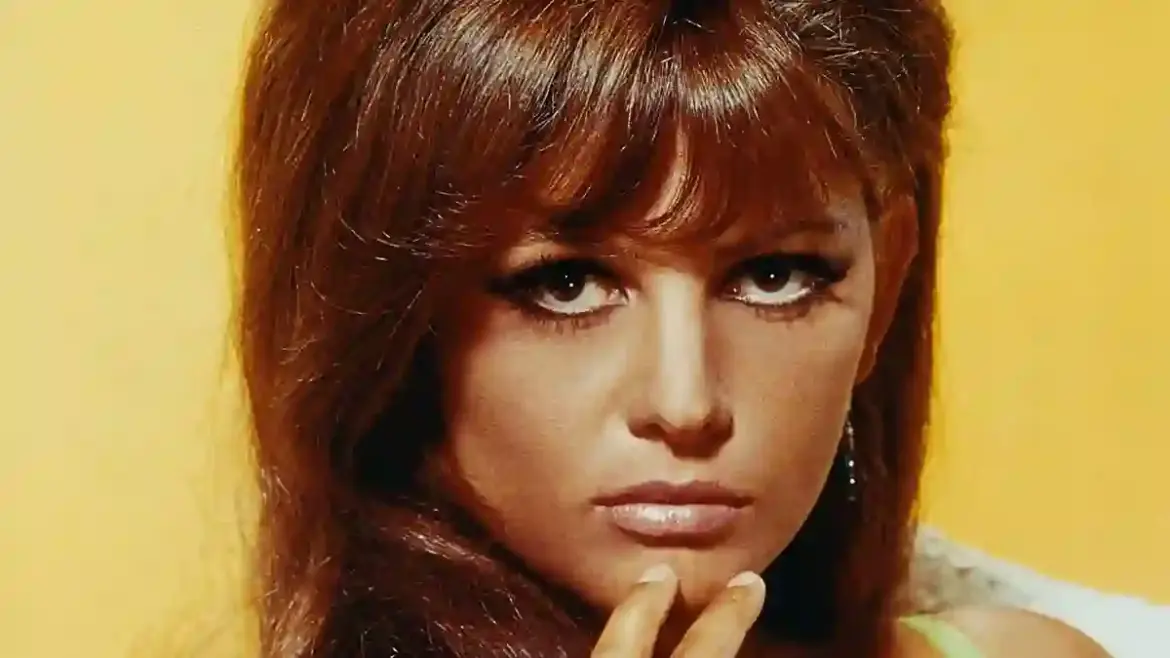Claudia Cardinale, the Italian screen legend whose beauty and talent lit up European and Hollywood cinema alike, has passed away at the age of 87.
Known for her powerful screen presence and versatility, she spent decades captivating audiences across continents with roles that ranged from royalty to ranchers, aristocrats to outlaws.
She died in Nemours, near Paris, surrounded by her children, her agent Laurent Savry confirmed.
“She leaves us the legacy of a free and inspired woman, both as a woman and as an artiste,” he said in a heartfelt tribute.
From Reluctant Star to Film Festival Darling
Born in 1938 into a Sicilian family in French Tunisia, Cardinale’s journey into film began almost by accident.
At just 17, she won a beauty contest that crowned her “the most beautiful Italian woman in Tunis” and whisked her off to the Venice Film Festival.
Producers were immediately smitten, but she resisted their offers.
“I was very young, fierce, modest, almost wild. And without the slightest desire to exhibit myself on film sets,” she recalled years later.
Initially, she dreamed of becoming a teacher, not a movie star.
Personal Struggles Behind the Glamour
Her early years carried a darker chapter. At 19, she was raped by a Frenchman and became pregnant with her son Patrick.
Determined to raise him despite the scandal an out-of-wedlock child would bring in 1950s Italy, she signed a contract with producer Franco Cristaldi to provide financial stability.
At Cristaldi’s suggestion, she kept Patrick’s true identity secret, introducing him as her brother during his childhood.
“It was for him that I did it,” she said later, explaining that her entry into cinema was less about ambition than survival.
Rising Through Italian Cinema
Her screen debut came in 1958 with Omar Sharif in Goha and soon after, the classic caper Big Deal on Madonna Street.
By 1960, she was already drawing attention in Il bell’Antonio and Luchino Visconti’s Rocco and His Brothers.
She was not just a beauty, but an actress capable of depth and vulnerability, as seen in Valerio Zurlini’s Girl with a Suitcase (1961).
The role of a nightclub singer and young mother, so close to her own lived reality, cemented her status as both a star and a serious actress.
The Leopard, Fellini, and Stardom
Cardinale’s career exploded in the early 1960s. She starred in Visconti’s epic The Leopard alongside Burt Lancaster and Alain Delon, delivering one of cinema’s most unforgettable ballroom sequences.
At the same time, she was dashing between sets to shoot Federico Fellini’s 8½, a masterpiece that remains a cornerstone of world cinema.
Despite her Sicilian roots, Cardinale grew up speaking French and Arabic, and her Italian was initially weak.
She often had to be dubbed, but her charisma made up for it. Fellini, however, insisted she act in Italian, French accent and all.
Hollywood Beckons
Her beauty and magnetism soon caught Hollywood’s attention.
In 1963, she starred opposite Peter Sellers in The Pink Panther, playing the exiled Princess Dala, while in 1968 she delivered one of her most iconic roles in Sergio Leone’s Once Upon a Time in the West.
As the widowed rancher Jill McBain, she went toe-to-toe with Henry Fonda, Charles Bronson, and Jason Robards, giving a performance that was both sultry and steely — a rare leading role for a woman in the male-dominated western genre.
International Ventures and Romantic Turmoil
In 1969, she joined Sean Connery and Peter Finch in the Soviet-Italian co-production The Red Tent.
By then, her private life was entangled with Franco Cristaldi, whose role as both her producer and partner dominated her early career.
By the mid-1970s, she broke free, both professionally and personally, and began a long relationship with filmmaker Pasquale Squitieri, with whom she collaborated on several films, including the mafia drama Corleone.
Later Career and Global Recognition
Though her career slowed during the 1970s and 1980s, she never truly faded from the screen.
She appeared in Werner Herzog’s Fitzcarraldo (1982), the acclaimed miniseries Jesus of Nazareth (1977), and continued working internationally.
She even released a disco record, Love Affair, in 1977.
Decades later, she was still working — from the Turkish drama Signora Enrica in 2010, which earned her a Best Actress award, to Netflix’s 2020 crime thriller Rogue City, where she played a Marseille crime boss.
An Enduring Legacy
Cardinale’s life was filled with contradictions — a woman reluctant to enter cinema who became one of its most enduring faces, an actress often dubbed but whose screen presence transcended language, and a survivor who transformed personal trauma into unforgettable performances.
Through it all, she remained a symbol of strength and elegance, carrying with her not just the glamour of the golden age of cinema but also the resilience of a woman who lived life on her own terms.
